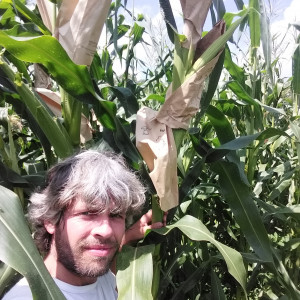Gochenour Seeds
Located in Oneida, TN, United States (Zone 7a)
0 Total Reviews
Farm Facts
Established in 2020
1.50
acres in production

Joshua Gochenour
About the Farm
I'm located on the Cumberland Plateau of Tennessee. The local geography leads to a somewhat different climate from the majority of the South. Because of our elevation, we have diseases that are often rare or minor in lower areas, in addition to typical Southern pathogens. There is very little commercial agriculture in the region, which helps biosecurity purposes.
I use about 1.5 acres at the moment, mostly for maize, squash, and Phaseolus bean breeding. Other than occasional odd jobs, I manage everything solo.
I'm a breeder rather than a true seed seller, so what I offer is predominantly extras from my crossing projects and breeding pools. Some items will only be available for a while as they get "assimilated" into other projects and populations.
Our Commitment to Quality Seed
Currently, I hand-pollinate all my maize and squash with controlled bagging and taping. Unwanted outcrossing is very rare. Maize varieties are staggered in sowing date to further minimize contamination. I use space isolation for beans.
I carefully test all my seed for healthy germination and often pick right at maturity to ensure higher seed health. Seed is often kept in the freezer for longevity and freeze treated to kill storage pests.
Our Growing Practices
I'm not organic at the moment, because much of what I use for breeding material isn't fully adapted yet. We have so many fungal diseases that something will kill a crop even if it resists 4/5 pathogens. I have to apply mild fungicide on certain materials to keep them alive while I'm in the process of mixing and mating everything. After several generations of mating, I'll be able to select hard for local disease resistance and lay off the sprays.
No transgenic crops on the farm ever and none around it.
Our Seed Farming Experience
I fiddled around with maize and beans off and on from 2011 - 2016. Became interested in plant breeding along the way, emphasis on disease resistance and using exotic genetics. I worked with a small, organic seed company in 2018. Operated my first maize breeding nursery in 2020. I've saved seed from maize, common bean, and squash.
Southern Exposure Seed Exchange has purchased maize seed from me several times.
Regional Adaptation
The main goal of my work is to breed locally-adapted crops for this unique region. Whether maize, tomato, squash, fava beans, etc., very few introductions stand up consistently to our production problems. Diseases seem to change from year to year. And the weather is anybody's guess.
The silver lining is that crops bred here likely will be useful to growers in other locations, especially those with prolific fungal issues.
